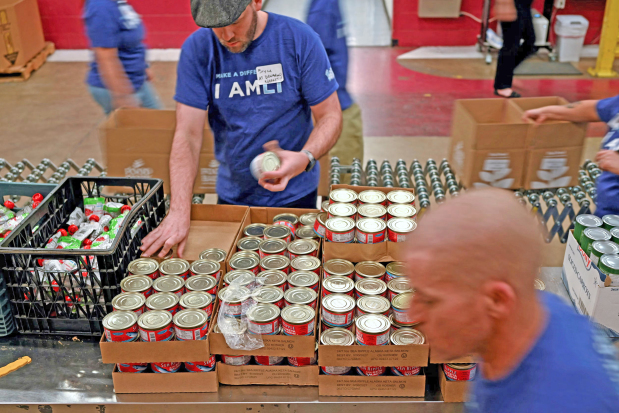Cynthia Kirkhart, the CEO of Facing Hunger Foodbank in Huntington, West Virginia, has already had to explain to customers this year why the organisation is rationing bags of potatoes.
The food bank, which also serves households in Kentucky and Ohio, has had to shrink its allotments as higher food costs and surging need strain its budget.
Now facing the prospect of nearly 300,000 West Virginians missing November Supplemental Nutrition Assistance Programme (SNAP) benefits, also known as food stamps, due to the federal government shutdown, there is little more she can do.
“You remove SNAP dollars, and people have no resources. We’re in some real trouble,” Kirkhart said. Nine food banks and anti-hunger groups in eight states told Reuters they will struggle to absorb higher demand if November SNAP benefits are not distributed. The shutdown, now the second-longest in history, has prevented Congress from funding the benefits, which reach more than 41 million Americans.
Hunger in the US is already on a multi-year rise. The administration of President Donald Trump has cut some federal food bank funding and hiked SNAP work requirements, which could push some people off the programme.
States warned this week that hunger could surge if SNAP benefits lapse. The shutdown also threatens benefits for nearly 7m participants in the Special Supplemental Nutrition Programme for Women, Infants, and Children, known as WIC. The US Department of Agriculture said the benefit cliff is “an inflection point for Senate Democrats.” Democrats have withheld votes on a spending bill in an effort to keep healthcare prices from spiking for many Americans. Democrats and Republicans have blamed the other for the shutdown.
Food banks have already seen record demand in recent years as food price inflation and the long tail of the Covid-19 pandemic strain household budgets.
More than 50m people received food from food banks, pantries and other charitable sources in 2023, compared to roughly 40m in 2019, according to Feeding America, a national food bank network.
Food providers have boosted fundraising, trimmed hours and pared back offerings to try to keep up. But their role has always been to supplement government aid, not replace it.
Some organisations are still hoping to fundraise ahead of a potential November surge, like the United Way of New York City, which has opened an emergency fund to quickly funnel money to low-income households if needed, said president and CEO Grace Bonilla.


&uuid=(email))